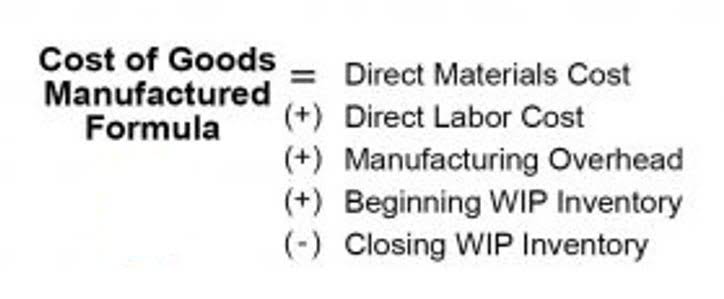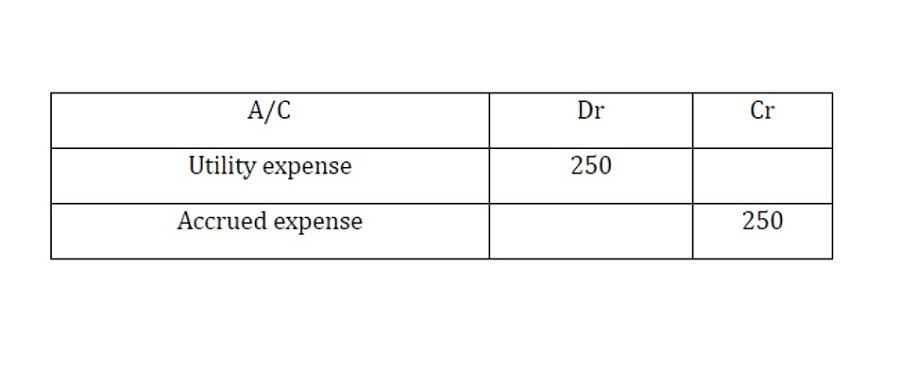
Stock prices and other stock numbers are the key for most businesses, but especially farmers. Record stock levels to understand market value and maintain a healthy farm business. IFRS Accounting Standards are, in effect, a global accounting language—companies in more than 140 jurisdictions are required to use them when reporting on their financial health. In the ag industry, many farmers rely on preparers for their farm accounting needs, but those services aren’t always… The planting of one crop coincides with the harvest of another, and the sale of the second crop occurs when the first crop is gathered. Agricultural accounting is distinct from the accounting procedures used by many other Bookkeeping for Chiropractors companies because farming has particular production cycles.
- That way, you can potentially lower your tax liability if your income is high one year and low in another.
- Accurate inventory valuation is essential for producing meaningful financial statements and for strategic decision-making regarding production and sales.
- All other livestock, such as breeding animals, cattle, sheep, goats, and longer-lived production animals are usually considered assets.
- For information pertaining to the registration status of 11 Financial, please contact the state securities regulators for those states in which 11 Financial maintains a registration filing.
- Farmers who make use of these subsidies must account for every cent, especially if they are made as direct payments.
Great! The Financial Professional Will Get Back To You Soon.

Production animals with short lives are usually considered inventory; the shorter lifespan (operating cycle) lends well to the inventory designation. All other livestock, such as breeding animals, cattle, sheep, goats, and longer-lived production animals are usually considered assets. Both the direct and indirect costs of care and development are tracked and accumulated until maturity.

Integration Through Enterprise Resource Planning Software
- Agricultural land is valuable and widely desired that is why the portal allows presenting agricultural and rural real estate – connecting both buyers and sellers.
- These differences are most apparent when it comes to reporting on the profit-and-loss statement (PnL) and the balance sheet.
- Whether through advanced accounting software, professional consulting services, or ongoing education and training, investing in agriculture accounting is crucial for the future of the farming industry.
- Farm accounting management practices are important for accurate and dependable day-to-day operations to guarantee that farms are optimized and profitable.
- Revenue is usually recognized when it is earned, and expenses are recognized in the same period as the revenues to which they relate.
- This method records income and expenses when they are earned or incurred, not when the cash is exchanged.
The farm accountant, endowed with financial acumen, emerges as a trusty guide in this challenging journey. A formal education in accounting or a related field, an understanding of agriculture, relevant certifications, and ongoing professional development are required. An agricultural accountant manages the financial aspects of agriculture and guides decisions through risk analysis. However, a deep understanding of agriculture, either through additional coursework or hands-on experience, is equally crucial. Like all accountants, agricultural accountants require formal education and training. To navigate the intricate landscape of agricultural accounting, several key skills are needed.
Farm Accounting 101: The Basics You Need to Know

The process of revenue recognition is further complicated by the presence of government programs that provide financial support to farmers. These programs can result in payments that are not directly tied to the sale of agricultural products but are nonetheless an important component of Online Accounting a farm’s revenue. Recognizing these payments requires an understanding of the program’s stipulations and the appropriate accounting period in which to record the revenue. Transitioning from the foundational principles of farm accounting, we now delve into the financial statements that serve as the bedrock of a farm’s financial reporting. These documents are indispensable tools for farmers, providing a snapshot of the operation’s financial status and enabling stakeholders to assess the farm’s economic health and performance. A farm accountant is a professional who specializes in handling the unique financial needs of agricultural businesses.

You also need to account for things other small businesses do and understand accounting issues specific to your industry, including how to treat livestock, land, equipment, and more. You must keep all records that show your farming business’s income and expenses. This includes supporting documents for purchases, sales, payroll, and all other business transactions.
HAVE TAX QUESTIONS? WE HAVE ANSWERS!
- Discover the key elements of farm accounting, from foundational principles to financial statements and effective management practices for agricultural success.
- Their roles span the spectrum of financial management, from day-to-day bookkeeping and developing efficient record-keeping systems to offering strategic financial advice and performing tax planning.
- But, it wasn’t until the 1990’s that data management systems really took off, despite…
- Explore the intricacies of agricultural accounting, from livestock financials to tech integration, to enhance farm management and reporting accuracy.
- Agricultural accountants need to be proficient in specialized accounting software designed for the farming industry.
- Liquidity ratios, such as the current ratio and the quick ratio, assess a farm’s ability to meet short-term obligations without selling inventory or making other significant changes to operations.
Farm entrepreneurs must be aware of the financial health of their businesses and possess a firm grasp of accounting concepts. In addition to financial ratios, benchmarking against industry standards or historical farm data can offer valuable context for a farm’s financial performance. Comparing a farm’s financial metrics to those of similar operations can highlight areas of strength and opportunities for improvement.
Agriculture accounting is an essential component of managing a successful farming business. By understanding and implementing effective agricultural accounting practices, farmers can maintain their financial health, make informed decisions, and ensure long-term success. Whether through advanced accounting software, professional consulting services, or ongoing education and training, investing in agriculture accounting is crucial for the future of the farming industry.
- This includes decisions related to planting, harvesting, and managing livestock, ultimately leading to a more profitable and sustainable farming business.
- Farm accountants employ a variety of methods to estimate the value of these assets.
- This method provides a more accurate picture of a farm’s financial health at any given time by recognizing receivables and payables.
- Transitioning from the foundational principles of farm accounting, we now delve into the financial statements that serve as the bedrock of a farm’s financial reporting.
- However, it can be less accurate in terms of matching income and expenses to the time periods in which they are actually generated or incurred.
- Their broad understanding of the financial intricacies of farming operations makes them a vital partner for farmers, ensuring the financial health and sustainability of the farm.
Post-harvest costs are usually estimated, accrued, and allocated to the harvested crop. Additional costs of growing crops, such as soil preparation, fertilizer, or pesticides what is agricultural accounting are also allocated to the harvested crop. As an example, cultural shifts toward vegetarianism lead to less production of animals and more toward crops. Nations depend on agriculture for self-sufficiency, and most governments do not hesitate to provide subsidies to their farmers as a result. Also, under this accounting system, expenses paid in advance cannot be deducted. This applies to any payment made so far in advance that it has, in fact, turned into an asset with a useful life beyond the end of the current accounting period.
